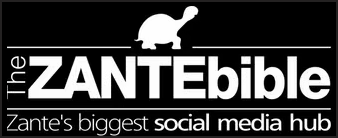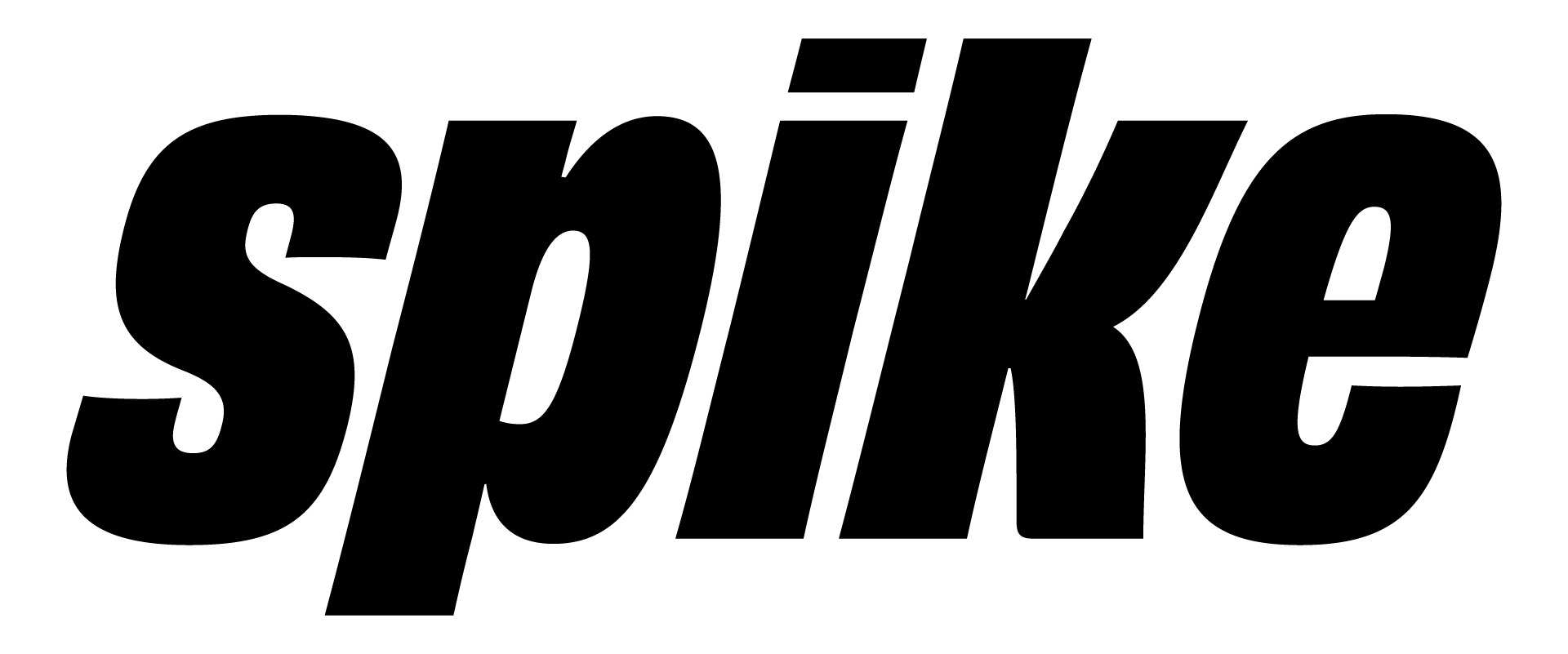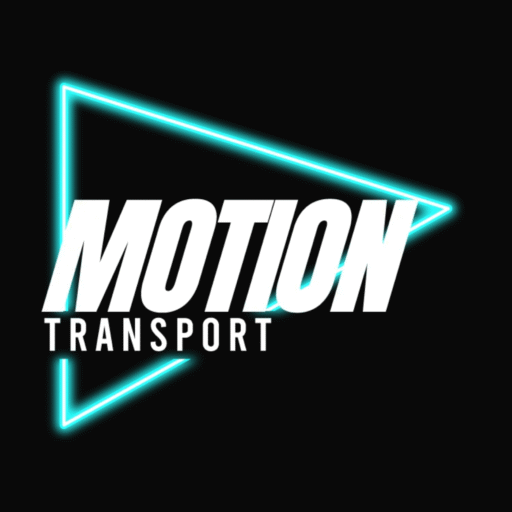
Edge Testing offer specialist software testing consultancy – a service that is becoming increasingly important as more and more companies choose to focus their efforts on creating software and digital transformation. That's why we wanted to spend time with Edge Testing's Technical Testing Director, Dan Martland, in our latest Senior Tech Talk.
Could you tell us a little bit more about Edge Testing as an organisation and your goals as a business?
Edge Testing is a specialist software testing consultancy founded in 2007 by a pair of practitioners who'd worked at several other consultancies prior to that, and felt that whilst their previous employers did a good job, they thought they could do a better job of it so they took the brave step of starting the company. Literally within weeks the financial crash happened and, as our founder tells the story, people were queuing outside Northern Rock within days of the company starting. It was a very challenging time to start a new business.
However, they really persevered and pushed hard and were able to make that a success, and now thirteen years later here we are, a significant player within the UK market and now part of an international global testing organisation, Eurofins.
In terms of our goal as a business, fundamentally our goal is to help our clients become better at delivering quality software. That is how we think about what we do. Nobody does testing for the fun of it, except for a few individuals who are kind of a bit geeky in that way. Everybody is doing testing because they want to have confidence in a product they are building, something that is going to deliver real business value. When you may be investing millions, or tens of millions, or hundreds of millions of pounds of money in a new software system or solution, clearly you want to know you're going to get the value you're expecting for your business. And again, you want to have confidence in that quality without having to invest further huge sums of money, which then potentially either impact your return on investment calculations or your ability to go live by a certain principal date. So our focus is always on helping our clients deliver with confidence and help them be better at doing that themselves.
Where we have real success, we've built very long term relationship with clients. We have gone with them or taken them on a journey, where they have started off, perhaps, in doing software delivery in a more ad hoc way, we've helped them move into a structured quality delivery approach.
Now with the move to DevOps in recent years, again, organisations have had another evolution that they have needed to go on with how they deliver software and understanding how quality fits into those processes. A lot of these methods and these ways of working, they don't necessarily address testing or quality as a primary concern. It's implied. That means that a lot of organisations incorrectly think that you don't need testing if you're being agile, you don't need testers in those kinds of ways of working, and that couldn't be further from the truth.
Fundamentally, our purpose is to help our clients be better at delivering quality software. We do that by bringing really good practice and our experience to them. Working collaboratively with them and helping them grow their internal capability so that they can do more with less. Sometimes we leave them in a better place, we go away, but then in many cases get invited back in, which is great. Or in certain cases there's a very long term ongoing relationship where we continue to help those clients deliver software in new and interesting ways.
Could you please describe your role within the business?
I am the Technical Testing Director within Edge. Key parts of my duties are to be the head of our technical testing practice. We have seen an evolution within testing over the last five years. It was about that time that I was asked to join Edge. One of our founders, a gentleman called Brian Ferrie, was very technical himself, and he did a lot of really pioneering work in that space for the company when the company was founded. He got pulled more into the operational and business side of things over time, so the board felt it was important to bring in somebody else to help continue the growth in the technical space.
What we have seen is that as software development has evolved, the ways of working have radically changed. It's no longer the case that you might have a team of thirty test analysts working on a project, doing manual testing of various kinds, to try and check if the system that has been delivered is fit for purpose. Instead, what we've moved to is a much more iterative way of working where we are leveraging technology to be able to work more efficiently.
Looking at Agile as an example, when you move into doing sprints on maybe a two-week basis when you get really good at that type or way of working, you're going to have a higher number of regression tests to make sure that all your functionality is still working, and you can't do that manually. It's just not possible. You have an ever-growing amount of regression testing that's needed.
Another thing is, with systems becoming ever more omnipresent, service is always there, people can then use that tool to connect common things that are key to their business but may not be directly under their control. What happens when a system runs slowly? What happens when a third party element is not there? It's very important to be able to induce these kinds of negative conditions. And again, test how your system responds to that scenario. To do that, to induce those kinds of marginal events, it's very useful to be able to use testing tools to then create scenarios which wouldn't naturally occur very often at all.
This means we've seen a move in the way testing is done. Away from large rooms of people sitting at a keyboard doing testing as the user would, to earlier engagement with technical components and focusing on the technical viability of a solution, rather just then the user experience for the end user view of the system. That has meant that we have to be more technical in the way that we do work.
I was brought into the company to accelerate that capability. Initially we formed a technical practice that was focused on bringing together these technical people within our company so they could work more closely together, focussed on collaboration, knowledge and experience. For about two or three years that was the way that we concentrated our experience within the team to really help them grow and thrive.
Now, things have evolved and everyone within the company is technical or becoming more technical. And the technical practice exists as a collaboration tool or collaboration forum within the company where the people who have more experience or specific skills, they can then share that with a wider team. Really, it's about helping everyone within the company grow, develop their skills, become more technically capable over time. That's something we believe very strongly in.
One of the key trends we see is that the tools that are in use today are not the tools that we're in use a few years ago and they won't be the tools that are in use in even a year's time or sometimes a few month’s time. Having a person who has one set of technical skills and that is all that they really specialise in is becoming a less common scenario. Those people become, their skills rather, become low demand or obsolete over time. What is far more important is to have a continually learning organisation and again the purpose of a technical practice and my role of overseeing the technical practice is to really help build that constantly learning environment. So we are constantly identifying new tools and technologies that will be a value to our clients, working out what knowledge we already have in house, what transferable skills we have within our team, what extra kind of knowledge and learning experience we need to bolster the team, and then put those things in place to help be ready for the client need. That's a key part of my role.
Could you please describe the level of service an organisation can expect when it partners with Edge Testing?
We very much pride ourselves on our service. I talked already about how we build long term relationships with our clients. Our very first client was Heineken. They are still a billing client today. We have worked with them on a great many projects and services and innovations over the thirteen years. That can help to give you an indication of how we build relationships with clients and they keep coming back to us.
We very much are focused on delivering what our client needs, so we work very hard to understand what that need is. We work very hard to bring suggestions of innovation to them so that they can work more effectively.
Every client has a service delivery manager who looks after them, in terms of their engagement with the business. Where we are rapidly growing a relationship with the client, we may also give them an account manager, who just helps manage that growth aspect of the relationship. We also have a technical delivery function now, with the increased technical focus, a technical assurance function to support the service assurance we have always done.
We are assuring that we are delivering from a technical point of view and really working closely with the clients to understand, "What are you currently doing? How can we help you deliver that more effectively and efficiently? How can we help you grow your capability?" As an illustration for that, we were working with a mobile telecoms provider on their migration from their one particular CRM system to a new CRM system. We had a reasonably sound team in place doing manual testing for them.
It was taking them twenty days of effort to set up all their test data for each of their cycles of release testing. We said to them, "That's crazy. Let us automate this for you”. We got that twenty days of effort down to a few hours of executed testing. Businesses always want to be able to deliver faster and better for their end consumers. We want to help them do that.
In terms of service, we very much want to deliver. We want to understand what our clients really need and what they're trying to achieve. We'll help them deliver their project in the short and medium term so that they can be successful in their current objectives.
Is there more to innovation in testing and if so, what does it look like?
I think there are waves of innovation within the testing world. It really, to my mind, is about understanding the tools that are available and how you can apply those tools. The thought processes behind how testing is approached. I've been in testing for over twenty years. When I first started out the testers were really encouraged to be very, very literal in what they did. You had a set test script. You followed the test script in detail. You didn't deviate. A defect was only a defect if it was something that would go wrong with the steps. You never talked to the developers. That has changed massively in terms of agile ways of working, where now we have constant collaboration. We really focus on what's very important. We're not obsessing over these thousands of scripts now.
That has required a different way of looking at how testing is approached. All the core skills that have always existed are still valuable, in terms of good test design and understanding how software is delivered and developed. You have to have even more skills. I think one of the big areas of change is this idea that now, people need to have even more capability.
One of the areas of innovation we see is the different skills that people need and to be able to use those skills in a different way. Clearly there are software trends around machine learning and artificial intelligence that are very interesting. We have had clients approach us wanting to apply machined learning to their suite of test scripts. To say, "Okay. What can we draw out of this set of manual test scripts?" The key essence of these, which we can then use to make testing more efficient. Consolidate it. Increase consistency. Move towards automation more easily.
We're also using machine learning with our clients to analyse the need for their environments. One of our clients is a large government agency. We applied machine learning to their use of cloud environments to support their testing tools. Bear in mind that this is a government agency that spends significant sums of money on IT infrastructure. We have saved them six figures on their cost of their planned infrastructure for the hosting of their testing.
Can you describe the working culture at Edge Testing?
We aim to very much be a people organisation.
We very much want to promote continual learning and we want to give people opportunity. Encourage them to take those opportunities and help them drive their careers forward. So, all the senior management team at Edge Testing have been practitioners of the software testing world, even our commercial director was a COBOL programmer back in the day, before he moved into sales and commercial aspects of the business.
I, myself, have been a hands-on tester, an automation tester and a non-functional tester focussing on performance for many years. Our managing director was a test manager et cetera. We see testing as a great career. It can really, really be a satisfying and rewarding career for decades, for all of a person’s working life. We want to really foster that love of solving the next problem. Growing yourself. Growing your skills. Contributing more to the projects and teams that you find yourself in. Really being a continually learning organisation.
To me that is key. As Satya Nadelle, CEO of Microsoft says, "Don't be a know-it-all. Be a learn-it-all." We really buy into that concept.
What impact do you believe COVID-19 may have on your business on the wider sector?
Certainly. It was a huge shock to everybody, obviously, when that happened. Part of my brief is I look after our IT capability within Edge. We had to go from being about 60% remote, maybe 40% of our people were working onsite with clients, to 100% remote working in two weeks. My IT admin team did a fantastic job.
Our clients were fantastically supportive. Even organisations that normally are a bit more cautious about their technical change, they again, moved very, very quickly to remote working. There was only a tiny number of clients who put projects on hold. Pretty much everybody was able to continue working, which, again, was a fantastic endorsement of how software delivery as a discipline is able to thrive in this kind of new remote world that we need to operate in for a time being.
There were challenges for example some clients who have a need for higher levels of security. We had to work with them to decide or define how to put secure connections in place for cloud environments. That, again, was achieved in a matter of days.
From a business point of view, our client's businesses, we've identified an evolution or a life cycle that people are going through. There was the initial response to COVID-19, where everyone had to move into operating remotely. It was then a stabilisation period, where people would stabilise those things to operate their business with confidence. Now they are starting to recover their medium and longer term projects.
COVID-19 is undoubtedly going to have a long term impact on the way we work. I think about what happened with World War II. With World War II, it had massive impact on our society because suddenly the entire country had to engage in the work effort. Women were brought into the workplace on a mass scale for the very first time and we got to see the great contributions they could make. We had a much more egalitarian society based on people's contribution rather than it being the old boys network
I think we are going to see positive change through COVID-19. We don't need to all commute to an office, with massive congestion on the roads and damage to the environment. We can work remotely in lots of ways which saves time and reduces our carbon footprint. We can collaborate more effectively over distance by using the tools available to us and really start to bring in a wider range of voices and people who might otherwise find it difficult to work a nine to five office job, they can again be fully engaged in the world of work and contributing. I do see that there will be change in the way that work is done. There will be a change in the way that people want to consume things. There'll be much more consumption via internet channels again. Really this was an evolution that was already happening, but COVID-19 massively accelerated that change. It will have a number of positive effects which will persist.
Is being a part of Manchester's tech and digital community important to Edge Testing and if so why?
Absolutely. As I mentioned, our company was founded in Scotland and based in Scotland and grew very successfully there. Then of course, it's here now. The management team is working to push out into the wider UK and England and we started a base in Birmingham, because we felt that was an area that was, at the time, quite dynamic and was under served.
What we see with Manchester is that Manchester really is one of the premier business hubs of the country. So many of our client’s organisations, if they didn't already have a base in Manchester, they're building a base in Manchester. There is such a concentration of talent in the city and the spirit of innovation and a dynamic way of approaching problems and challenges that it is really important to be part of that.
We see our large clients who are moving to the city. We see new startups who are thriving in the city. We see the universities building a great talent pool within the city. When people come to Manchester to learn, they love the culture and the lifestyle, and they want to stay there after they graduate. Yes. We see Manchester as a modern growing centre of innovation within the country.
We really need to continue to be part of that. For our goal of being a top tier player in the UK testing consultancy space, clearly, we have to be in Manchester. For all the advantages it presents to be able to engage with new clients. To be able to service established clients. To be able to find and recruit great talent. Really bring that together in that melting pot and leverage out all those good things, the opportunity that brings for us, when we opened our Manchester office over two years ago now. That was a massive step up for the organisation. A huge opportunity. A huge increase in capability to be able to serve our clients. Really, Manchester is such a dynamic city within the UK.
We are very pleased to be able to be part of it and are looking forward to continuing to grow that relationship with the city. Continuing to grow that relationship with the players in the area. To grow our relationship with the Universities and be able to provide great careers for people here in Manchester.
Want to raise your company's profile?
If you would like to feature on our website, social media or newsletter contact thom@manchesterdigital.com to find out how you can get involved.







